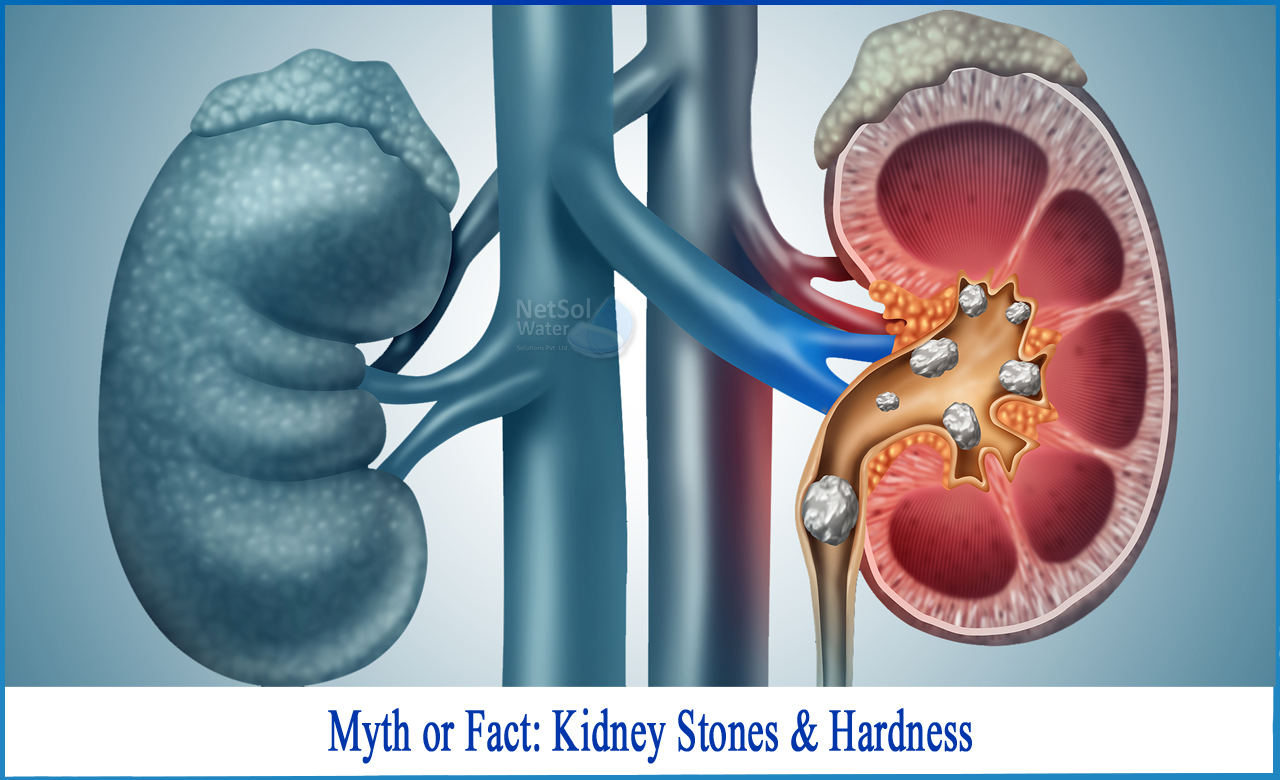Can Hard Water Cause Kidney Stones?
Depending upon the source of water, hardness in water may vary from place to place. The source of hard water is typically a river with a lot of sediment which the water picks up along the way to the water treatment plant but hard water could also come from ground water or a lake. To be more precise, inthe case of lime-scale, this usually means, calcium and magnesium which when combined form limescale in tea kettles, coffee machines, glasses, around the faucets and other places.
Municipal treatment plants generally don’t soften the water due to the following reasons:
- Would mean removing healthy minerals which are essential for consumption.
- Expensive in terms of energy, material and environmental impact.
- May impact the water taste negatively which affects the supply chain.
ASSOCIATED HEALTH RISK
Calcium is an important mineral for the body. Our bones need it and actually also our kidneys for functioning. The evidence in support is that the tap water hardness influences calcium stone formation, which is weak.
Firstly avoiding kidney stones, the best thing you can do is to drink plenty of water (hard or soft). Drinking extra water helps in dilution of substances in urine that lead to stones. It may also a help to include some citrus beverages, like lemonade and orange juice. The citrate in these beverages helps block stone formation in kidneys.
Secondly, most of the long term studies show no or very little relationship between hard water and kidney stones. For the general population, there simply is no increase risk associated. However there are people with poor health, with an increased risk, which is why doctors may give a warning. If you have kidney stones already then you should follow the advice of your doctor. Bottled water and tap water may contain minerals that are not recommended for consumption by people with kidney stones.
MYTH OR FACT
Hard water does not cause kidney stone, but it may increase the risk of developing kidney stones. Research shows that if you drink hard water after treatment of kidney stones, they increase chances of developing the complication. Your doctor will advise you on the best way to avoid re-occurrence of the kidney stones and the potential health impacts of using hard water. But the research shows that it is not the quality of water, rather the quantity of water consumed that matters most in the occurrence of KSD.
There is some evidence however that very hard water (mineral rich water) with TDS above 400 ppm could increase risk of kidney stones. In most cases of kidney stones, the blood in a human body, due to certain inherent problems, starts absorbing more calcium from water and food than actually needed. As a result, excess calcium is deposited on the walls of the kidney in the excretion process.
Ironically the only reason of causing kidney stones is drinking lesser amount of water than required which in turn causes calcium to deposit inside the kidney. As far as studies are concerned, there is no favourable evidence, hence we may conclude that kidney stones have nothing to do with hard water.
Netsol Water is Greater Noida-based leading water & wastewater treatment plant manufacturer. We are industry's most demanding company based on client review and work quality. We are known as best commercial RO plant manufacturer, industrial RO plant manufacturer, sewage treatment plant manufacturer, and effluent treatment plant manufacturers. Apart from this 24x7 customer support is our USP. Call on +91-9650608473, or write us at enquiry@netsolwater.com for any support, inquiry or product-purchase related query.



